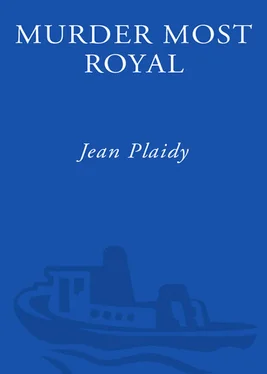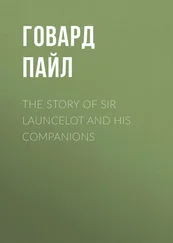Jean Plaidy - Murder Most Royal - The Story of Anne Boleyn and Catherine Howard
Здесь есть возможность читать онлайн «Jean Plaidy - Murder Most Royal - The Story of Anne Boleyn and Catherine Howard» весь текст электронной книги совершенно бесплатно (целиком полную версию без сокращений). В некоторых случаях можно слушать аудио, скачать через торрент в формате fb2 и присутствует краткое содержание. Жанр: Старинная литература, на русском языке. Описание произведения, (предисловие) а так же отзывы посетителей доступны на портале библиотеки ЛибКат.
- Название:Murder Most Royal: The Story of Anne Boleyn and Catherine Howard
- Автор:
- Жанр:
- Год:неизвестен
- ISBN:нет данных
- Рейтинг книги:3 / 5. Голосов: 1
-
Избранное:Добавить в избранное
- Отзывы:
-
Ваша оценка:
- 60
- 1
- 2
- 3
- 4
- 5
Murder Most Royal: The Story of Anne Boleyn and Catherine Howard: краткое содержание, описание и аннотация
Предлагаем к чтению аннотацию, описание, краткое содержание или предисловие (зависит от того, что написал сам автор книги «Murder Most Royal: The Story of Anne Boleyn and Catherine Howard»). Если вы не нашли необходимую информацию о книге — напишите в комментариях, мы постараемся отыскать её.
Murder Most Royal: The Story of Anne Boleyn and Catherine Howard — читать онлайн бесплатно полную книгу (весь текст) целиком
Ниже представлен текст книги, разбитый по страницам. Система сохранения места последней прочитанной страницы, позволяет с удобством читать онлайн бесплатно книгу «Murder Most Royal: The Story of Anne Boleyn and Catherine Howard», без необходимости каждый раз заново искать на чём Вы остановились. Поставьте закладку, и сможете в любой момент перейти на страницу, на которой закончили чтение.
Интервал:
Закладка:
There was no sign of melancholy about Anne. She could not but feel a certain glee—though she reproached herself for this—when she heard that Percy and his Mary were the most wretched couple in the country. She blamed Percy for his weakness; it was whispered that the Lady Mary was a shrew, who never forgave him, being contracted to her, for daring to fall in love with Anne Boleyn and make a scandal of the affair. Very well, thought Anne, let Percy suffer as she had! How many times during the last years had she in her thoughts reproached him for his infidelity! Perhaps he realized now that the easy way is not always the best way. She held her head higher, calling her lost lover weak, wishing fervently that he had been more like Thomas Wyatt who had pursued her ever since her return to court, wondering if she were not a little in love—or ready to fall in love—with her cousin Thomas, surely the most handsome, the most reckless, the most passionate man about the court. There was no doubt as to his feelings for her; it was both in his eyes and in his verses; and he was reckless enough not to care who knew it.
There was one other who watched her as she went about the court; Anne knew this, though others might not, for though he was by no means a subtle man, he had managed so far to keep this passion, which he felt for one of his wife’s ladies-in-waiting, very secret.
Anne did not care to think too much of this man. She did not care to feel those little eyes upon her. His manner was correct enough, yet now there were those who were beginning to notice something. She had seen people whispering together, smiling slyly. Now the King is done with the elder sister, is it to be the younger? What is it about these Boleyns? Thomas is advanced as rapidly as my lord Cardinal ever was; George has posts that should have gone to a grey-haired man; Mary...of course we understand how it was with Mary; and now, is it to be the same story with Anne?
No! Anne told herself fiercely. Never!
If Thomas Wyatt had not a wife already, she thought, how pleasant it would be to listen to his excellent verses, which were chiefly about herself. She could picture the great hall at Allington Castle decked out for the Christmas festivities, herself and Thomas taking chief parts in some entertainment they had written for the amusement of their friends. But that could not be.
Her position at court had become complicated. She was thinking of a conversation she had had with the King, when he, who doubtless had seen her walking in the palace grounds, had come down to her unattended and had said, his eyes burning in his heated face, that he would have speech with her.
He had asked her to walk with him to a little summer-house he knew of where they could be secret. She had felt limp with terror, had steeled herself, had realized full well that in the coming interview she would have need of all her wits; she must flatter him and refuse him; she must soothe him, pacify him, and pray that he might turn his desirous eyes upon someone more willing.
She had entered the summer-house, feeling the color in her cheeks, but her fear made her hold her head the higher; her very determination helped to calm her. He had stood looking at her as he leaned against the doors, a mighty man, his padded clothes, glittering and colorful, adding to his great stature. He would have her accept a costly gift of jewels; he told her that he had favored her from the moment he had seen her in her father’s garden, that never had he set eyes on one who pleased him more; in truth he loved her. He spoke with confidence, for at that time he had believed it was but necessary to explain his feelings towards her to effect her most willing surrender. Thus it had been on other occasions; why should this be different?
She had knelt before him, and he would have raised her, saying lightly and gallantly: No, she must not kneel; it was he who should kneel to her, for by God, he was never more sure of his feelings towards any in his life before.
She had replied: “I think, most noble and worthy King, that Your Majesty speaks these words in mirth to prove me, without intent of degrading your noble self. Therefore, to ease you of the labor of asking me any such question hereafter, I beseech Your Highness most earnestly to desist and take this my answer, which I speak from the depth of my soul, in good part. Most noble King! I will rather lose my life than my virtue, which will be the greatest and best part of the dowry I shall bring my husband.”
It was bold; it was clever; it was characteristic of Anne. She had known full well that something of this nature would happen, and she had therefore prepared herself with what she would say when it did. She was no Percy to be browbeaten, she was a subject and Henry was King, well she knew that; but this matter of love was not a matter for a king and subject—it was for a man and woman; and Anne was not one to forget her rights as a woman, tactful and cautious as the subject in her might feel it necessary to be.
The King was taken aback, but not seriously; she was so beautiful, kneeling before him, that he was ready to forgive her for putting off her surrender. She wanted to hold him off; very well, he was ever a hunter who liked a run before the kill. He bade her cease to kneel, and said, his eyes devouring her since already in his mind he was possessing her, that he would continue to hope.
But her head shot up at that, the color flaming in her cheeks.
“I understand not, most mighty King, how you should retain such hope,” she said. “Your wife I cannot be, both in respect of mine own unworthiness and also because you have a Queen already.” And then there came the most disturbing sentence of all: “Your mistress I will not be!”
Henry left her; he paced his room. He had desired her deeply when she had been a girl of sixteen, but his conscience had got between him and desire; he had made no protest when she had wrenched open the cage door and flown away. Now here she was back again, more desirable, a lovely woman where there had been a delightful girl. This time, he had thought, she shall not escape. He believed he had but to say so and it would be so. He had stifled the warnings of his conscience and now he had to face the refusal of the woman. It could not be; in a long and amorous life it had never been so. He was the King; she the humblest of his Queen’s ladies. No, no! This was coquetry; she wished to keep him waiting, that he might burn the fiercer. If he could believe that was all, how happy he would be!
For his desire for Anne Boleyn astonished him. Desire he knew well; how speedily it came, how quickly it could be gratified. One’s passion flamed for one particular person; there was a sweet interlude when passion was slaked and still asked to be slaked; then...the end. It was the inevitable pattern. And here was one who said with a ring of determination in her voice: “Your mistress I will not be!” He was angry with her; had she forgotten he was the King? She had spoken to him as though he were a gentleman of the court...any gentleman. Thus had she spoken to him in her father’s garden at Hever. The King grew purple with fury against her; then he softened, for it was useless to rail against that which enslaved him; it was her pride, it was her dignity which would make the surrender more sweet.
The King saw himself in his mirror. A fine figure of a man...if the size of him was considered. The suit he was wearing had cost three thousand pounds, and that not counting all the jewels that adorned it. But she was not the one to say yes to a suit of clothes; it would be the man inside it. He would smile at himself; he could slap his thigh; he was sure enough of eventual success with her.
He too had changed since those days when he allowed his conscience to come between him and this Anne Boleyn. The change was subtle, but definite enough. The conscience was still the dominating feature in his life. There it was, more than life size. The change was this: The conscience no longer ruled him; he ruled the conscience. He soothed it and placated it, and put his own construction on events before he let the conscience get at them. There was Mary Boleyn; he had done with Mary; he had decided that when Anne returned. He would cease to think of Mary. Oh, yes, yes, he knew there were those who might say there was an affinity between him and Anne, but in the course of many years of amorous adventures had this never happened before? Was there no man at court who had loved two sisters, perhaps unwittingly? Mayhap he himself had! For—and on this point Henry could be very stern—court morals being as they were, who could be sure who was closely related to whom? Suppose these sisters had had a different father! There! Was not the affinity reduced by one half? One could never know the secret of families. What if even the one mother did not give birth to the two daughters! One could never be sure; there had been strange stories of changeling children. This matter was not really worth wasting another moment’s thought on. What if he were to eschew Anne on account of this edict, and make a match for her, only to discover then that she was not Mary’s sister after all! Would it not be more sinful to take another man’s wife? And this desire of his for this unusual girl could but be slaked one way, well he knew. Better to take her on chance that she might be Mary Boleyn’s sister. He would forget such folly!
Читать дальшеИнтервал:
Закладка:
Похожие книги на «Murder Most Royal: The Story of Anne Boleyn and Catherine Howard»
Представляем Вашему вниманию похожие книги на «Murder Most Royal: The Story of Anne Boleyn and Catherine Howard» списком для выбора. Мы отобрали схожую по названию и смыслу литературу в надежде предоставить читателям больше вариантов отыскать новые, интересные, ещё непрочитанные произведения.
Обсуждение, отзывы о книге «Murder Most Royal: The Story of Anne Boleyn and Catherine Howard» и просто собственные мнения читателей. Оставьте ваши комментарии, напишите, что Вы думаете о произведении, его смысле или главных героях. Укажите что конкретно понравилось, а что нет, и почему Вы так считаете.












